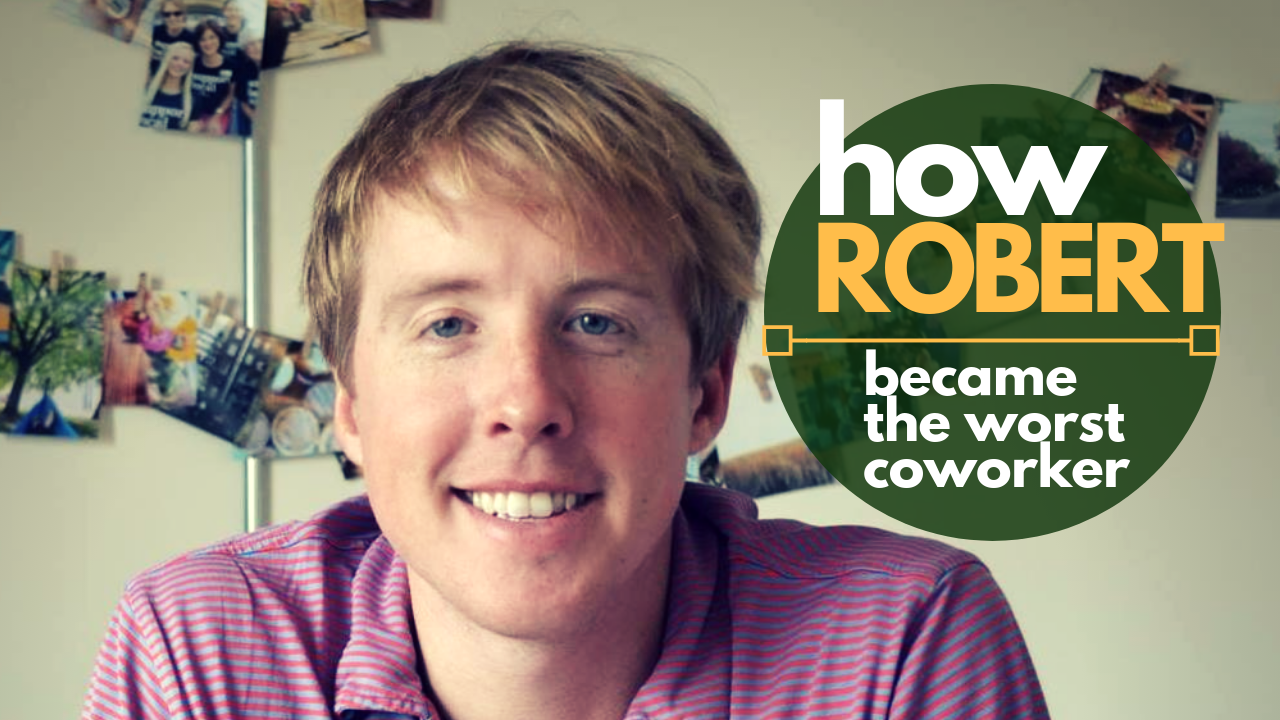- Digital nomad Robert Kropp opens up about how an increased workload affected his coworking habits.
- Robert admits to becoming the worst type of coworker, one that doesn’t socialize and mingle with others.
- He poses the question on whether there is something operators should do if they notice members become too absorbed in their worlds and isolated from others.
I am sitting in a small flat in Manchester, England. I am reflecting on the fact that I believe I became what I consider to be the worst type of coworker. This is happening just as I am getting ready to explore coworking spaces throughout the UK. In fact, GCUC UK is coming up next week in London. I figure it’s about time I take a closer look at my working and coworking habits of this Summer.
First off, what exactly does it mean to be the worst type of coworker?
Let me draw it for you:
I, Robert, was working in a coworking space in Paris for a day and I think–no, I know– I did not say a single word to anyone in the space. I showed up, paid for the day, had call after call, and then I left.
Core to the coworking brand promise and deep in the foundation of its original development is the idea of community, comradery, and collaboration. At least this is the reason why I started traveling and writing about coworking spaces around the world in the first place.
However, I had never experienced my workload multiplying by double and even triple at times as it happened this Summer. Aren’t earning a living and building successful companies that last important things? This got me thinking: is community all that important for people that are too busy?
While the amount of work I needed to do increased to unprecedented levels, so did my feeling that I had no time for breaks, for food, for chit chat, or anything that was not necessary for meeting the needs of clients and deadlines.
Here’s how my usual work day started to look. Grab a cup of coffee, shut the door, put headphones in, and get lost in my computer for the next 10 to 12 hours while intermittently drinking my coffee or water.
More often than not, I would take a break and look up only to notice that I was the only person remaining in the space.
I became the one thing and person that I don’t like in coworking spaces. I became the person that is always ‘busy’, too preoccupied to say hello, or too stressed to take 2 minutes to chat with someone while making (and drinking) a coffee.
How many people had given me their time in the beginning? How many people have I not gotten to know because I was too busy or didn’t take the time to introduce myself?
As I started to notice that I had been doing this all Summer, I began to think about how many people experience this same feeling and whether it was a good or bad thing.
Is it all that bad and a problem to be this type of coworker?
On one hand, I believe that if you are joining a coworking space, there is an obligation and an unwritten agreement that you want to become a member of the community that adds more to a space than you take from it. This includes occasional conversations, being physically and emotionally present, and just overall being a nice. friendly person.
On the other hand, if you are in the midst of an increased workload, are having a hard time making a living, or figuring out how to overcome any other personal challenge, you need to be able to focus on that. And yet, coworking spaces are supposed to help us cope with these types of situations; it can make a world of difference on our mental and physical wellbeing.
I know that had I been in my home coworking space in Tampa, next to people I have known for a while and spent the time to become friends with, I would have been able to better manage cope during this Summer. My stress levels would have been at a better and my productivity levels would have been much higher, just based on the fact that I have a strong support system there.
Life, work, and careers are full of seasons of good times and bad times. A coworking space can provide the support structure to help us get through them all. It is not only a good business decision for coworking operators in the world to build and grow this type of support environment–it can help retain members–, but it is also a good ethical decision, as it can potentially help your members surpass hard times.
At first, I thought that becoming this type of coworker was completely unacceptable. Now, I understand why it happened and am certain that it happens to many others around the world, whether they are working from home, a coffee shop, a coworking space, or a traditional office.
So I got to thinking.
What can coworking spaces do to help engage members that are overwhelmed, overworked, or are generally not taking care of themselves? Is this a question about wellness or more of a general question of how members are using a space?
As I dive more into these questions, I would love to hear your feedback. You can share your thoughts with me in Facebook or Twitter.



 Dr. Gleb Tsipursky – The Office Whisperer
Dr. Gleb Tsipursky – The Office Whisperer Nirit Cohen – WorkFutures
Nirit Cohen – WorkFutures Angela Howard – Culture Expert
Angela Howard – Culture Expert Drew Jones – Design & Innovation
Drew Jones – Design & Innovation Jonathan Price – CRE & Flex Expert
Jonathan Price – CRE & Flex Expert












